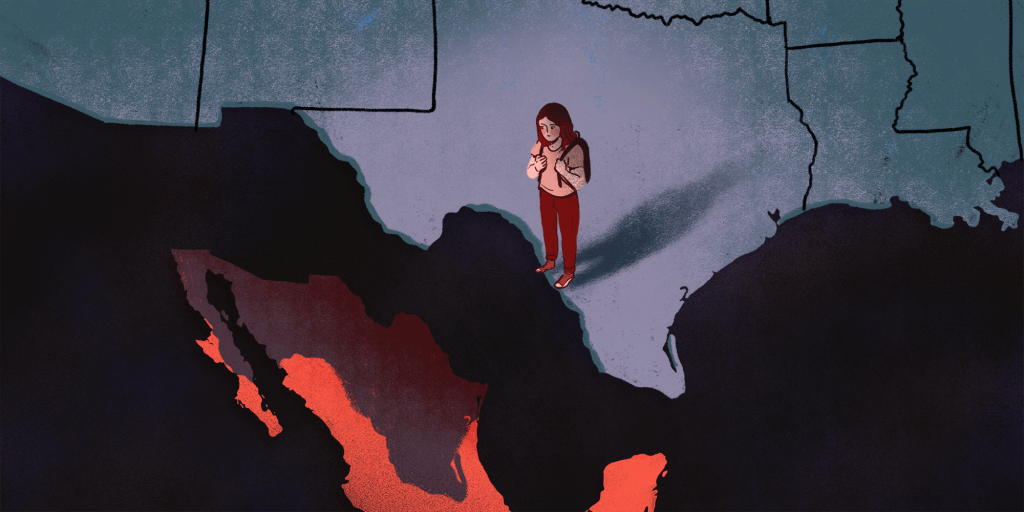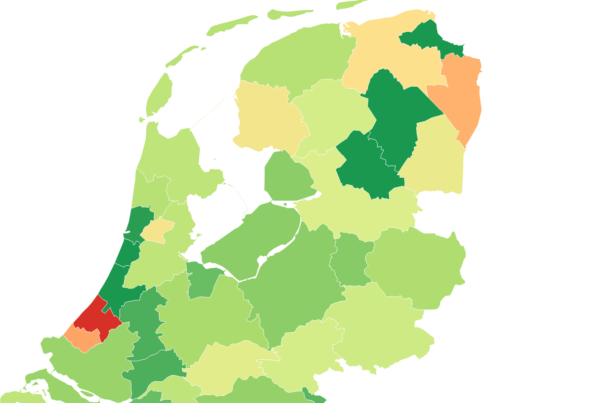- Advocates told Insider that Americans are increasingly looking to Mexico for abortion medication.
- Reproductive health networks are receiving hundreds of inquiries daily from people in the US.
- In Mexico, abortion medication is available over the counter.
Over the last decade, Mexico's movement to access abortion has notched several victories in the halls of justice. But north of the border, the landscape of abortion availability continues to move in the opposite direction.
Fifteen years ago, abortion was a crime in Mexico. In 2021, the Mexican Supreme Court challenged the ruling, stating that abortion would no longer be criminalized. In states like Mexico City and Oaxaca, abortion is legal. Now, Mexican advocates told Insider that Americans are crossing the border for support that is difficult to find – or illegal – in some US states.
Advocates said it's not just access to clinics people are seeking across the border. Mexican women are physically bringing abortion pills across the border to Americans.
"Today, medication abortion has revolutionized abortion access in and outside of the US and we do this totally for free – which is very surprising to Americans because everything costs a lot in the US," Veronica Cruz Sanchez, a leading Mexican women's rights activist told Insider.
Maria Antonieta Alcalde, the director of Ipas in Mexico and Central America, said since Roe v. Wade was overturned, the cross-border networks her organization works with have been fielding more than 100 calls per day. Cruz said her organization helps roughly the same amount of women coming from the US on a daily basis.
"Many of these women already had an appointment and their appointments were canceled and they are desperate because they already made the decision," Alcade told Insider.
"These women were just left without options," she added. "They are very concerned about traveling to another state because they are concerned that they're going to be persecuted in the future," she said.
'It's really a huge network of solidarity'
Alcade said the majority of calls are coming from Americans living in states with "trigger laws" such as Mississippi, Alabama, and Texas who must travel to another state to get an abortion.
Prior to the Supreme Court's decision on Roe, Alcade said cross-border reproductive health networks were specifically receiving inquiries from Texans after Senate Bill 8 took effect last year, which outlawed abortion as early as six weeks.
"It's really a huge network of solidarity that right now is being created at the border of Mexico," Alcade told Insider.
Cruz, who is based in Guanajuato, Mexico, told Insider her 22 years of campaigning for progressive law changes in Mexico prepared her and her organization — Las Libres ("the free ones") — for the backsliding of women's rights across the border.
"With all of this experience, we thought we could help and accompany women from Texas because we share a border," Cruz told Insider. "From January, we have been working with women from Texas and we noticed that women from other states with trigger laws were also seeking services."
Cruz's advocacy from 2014 onwards was crucial in tilting the balance for abortion rights in Mexico, as Mexico's Supreme Court ruled in 2021 that it would be unconstitutional to criminalize abortion.
Getting medical abortions into the hands of those who need it
Cruz said as restrictive state-based abortion laws were being enacted in the US ahead of the Supreme Court decision, Las Libres staffed up and assisted women wanting to cross the border to seek abortion services – mostly by delivering pills directly to American women in need of an abortion in the US.
Between January and June, Cruz's network of advocates was helping close to ten women a day access abortion medication, and information and locate Libres' physical centers daily. In the last month, Cruz said that number has ballooned.
"Right now we are helping 100 women to seek abortion services daily," Cruz said. "For example, someone who crosses into Mexico to buy abortion pills and then we can guide them through the process, or women who can cross into Mexico and our advocates will help them secure the pills and join them from and to the border."
Others are seeking Las Libres' help for information about abortion care or clinics in Mexico.
But now, Cruz said the most sought-after and safest service for many women is to have an advocate meet them on US soil to deliver abortion medication. Women from Mexico will physically cross the border with the pills in their bags and deliver them to American women.
"The most popular service is for women who want us to help put the pills in their hands in US territory," Cruz said.
Applying experience with countries in Central America
For years, Americans have crossed the Southern border for health care and medical supplies because of the cost: Not only is medical abortion in Mexico legal, it can be bought over the counter for around $20.
Ipas is prepared to deal with the influx of Americans trying to access abortion care in Mexico because of its experience working with countries in Central America where abortion is prohibited. In July, a woman in El Salvador was sentenced to 50 years in prison for having a miscarriage
Cruz said her network was preparing for an increase in solicitations after laws changed in the US.
"When one block falls from the entire tower you've constructed, every other human right can then be taken, and you need to be ready to start rebuilding," Cruz told Insider.
Alcade said it's possible even in very restrictive settings to have access to safe abortions, particularly when people have access to information. Alcade points to the number of grassroots networks that have emerged in the last 20 years in Latin America as being pivotal in providing this kind of health care.
"We are seeing the same trends in the US and that's completely worrisome and concerning," she said. "You can criminalize abortion, but that won't stop the need of women to have an abortion."










